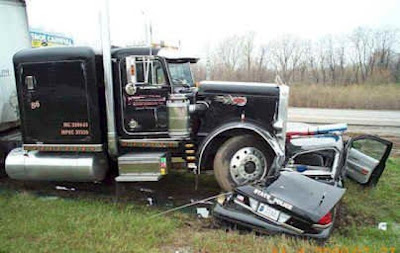Mystery stick insect
discovered
By Matt Walker Editor,
BBC Nature 4 September 2012
 |
| Conlephasma enigma: a stick insect like no other |
A mysterious new species of stick insect has
been discovered living in the Philippines by scientists.
The stick insect is wingless, lives on the
ground rather than in trees, and is spectacularly colored, having a green-blue
head and orange body.
The insect also vents a foul-smelling spray to
deter predators.
The stick insect is so unique that scientists
have given it its own genus and do not yet know its relationship to other stick
and leaf insects.
It looked so different from any other known
stick insect in the world that we immediately realized it was something very
special”
"Recently a colleague, entomologist Oskar
Conle, showed us some museum specimens of a strange-looking stick insect found
several years ago on Mount Halcon, a remote locality in the Philippine island
of Mindoro," explains Marco Gottardo, who is studying for a PhD at the
University of Siena, Italy.
The insect was found on the third highest
mountain in the archipelago, which is considered one of the richest areas of
biodiversity in the world.
"We were baffled. It looked so different
from any other known stick insect in the world that we immediately realized it
was something very special."
Mr Gottardo and colleague Philipp Heller
carefully examined the specimen.
"We concluded that it represented an
unknown genus and species of stick insect," Mr Gottardo told BBC Nature.
The scientists have published details of the
discovery in the journal Comptes Rendus Biologies.
"The new stick insect is wingless, with a
stout body and rather short legs," says Mr Gottardo.
The scientists think these features are likely
to be special adaptations for living in the low-growing vegetation of a montane
rainforest.
Most tree-dwelling stick insects that live in
the forest canopy have slender and elongated bodies and legs, thought to
provide good camouflage among stick and leaves.
"Another unique characteristic is the
spectacular color pattern. [A male] has dark bluish-green head and legs, and a
bright orange body with distinctive bluish-black triangle-shaped spots on its
back," he adds.
It is more likely that the insect uses these
striking colors to warn off predators, rather than as a form of camouflage.
Paperback books: http://www.gypsybooks.co.nz
E-books: https://www.smashwords.com/books/search
E-books: https://www.smashwords.com/books/search
"In fact we have discovered that the new
stick insect has the ability to release a potent defensive spray from glands
located behind its head.
"The defensive substance is sprayed when
the insect feels threatened, and has a strong distasteful smell, which likely
functions to repel potential predators in a similar way to skunks," says
Mr Gottardo.
The scientists have named the insect Conlephasma
enigma.
"We have named the new stick insect with
the specific epithet "enigma" because its systematic position in the
tree of life of stick and leaf insects remains a mystery," says Mr
Gottardo.
Many of the stick insect's distinctive
features are unlike those recorded on other stick insects.
One feature, however, has been seen before.
The microstructures of Conlephasma enigma's mouthparts are strikingly
similar to those held by another group of stick insects. The problem is that
these stick insects live in tropical America, on the other side of the world,
raising the question of how two insects so far apart might share a similar
trait.
The researchers hope that a more detailed
molecular analysis of the stick insect's genetics may shed light on its true
identity.
"We also hope that the discovery of this
particular new insect species may draw attention into the problem of rainforest
conservation in the Philippines, which are home to unique and still poorly
known wildlife," Mr Gottardo says.
More on BBC Nature: http://www.bbc.co.uk/nature
Peter’s Comment
This is a
pleasant surprise reading about the discovery of a new species.
All too often
we read about birds, animals and insects becoming extinct or endangered and
this can lead to a misunderstanding of the continuing process of evolution.
It is almost
certain that the number of species in the world is increasing all the time,
rather than decreasing, and that for each species that does disappear there
could be ten or more new species to take its place.

























